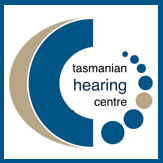Best headphones for ear health
The use of earphones and headphones has boomed, especially in this age of Zoom meetings and conference calls. However, the amount of time with amplified noise close to your ears by wearing either in-ear (earphones/earbuds) or on-ear/over-ear (headphones) highlights the need to not only choose the right type, but use them safely.
Bringing amplified sound into or onto your ears creates a higher risk of hearing loss, this is mostly caused by high volume but can also result from prolonged use.
Don’t damage your hearing or ears
Even being plugged in for an online meeting, you can minimise any danger of permanent hearing loss by limiting the volume you listen at as well as how long and how often you use any headphones. Earphones and headphones can both include attached microphones for telephony and meeting applications, but how they perform can differ greatly. The quality of the device you use can also impact your ear health.
Earphones, that sit inside the ear canal and nearer the inner ear, pose a higher risk to your hearing than headphones at a similar volume. Poor fitting earphones also affect the sound quality and increase the likelihood of overcompensation with volume. They can also scratch and aggravate your ears and, annoyingly, keep falling out.
On-ear or over-ear headphones, because of their size, can offer larger, better quality speakers and performance for both bass and treble. On-ear headphones will admit more ambient noise than over-ear ones, which enclose the ears more fully. Comparative comfort will depend on type and time usage. On-ear can be uncomfortable with prolonged use, while over-ear can be hot and comfort can ultimately depend on whether they actually cover or ‘crunch’ your ears.
Benefits of noise-cancelling devices
Noise-cancelling devises are considerably more expensive than ‘passive’ ones. They block, or ‘cancel’, unwanted low-frequency noise so you can listen with greater clarity. The technology of this, simply put, is to ‘cancel’ ambient sounds with an opposite sound that neutralises them, leaving you with just the amplified sound.
Noise-cancelling devices require power to operate, either through an attached battery pack or an internal rechargeable battery.
Existing Hearing Loss
An underlying hearing loss may complicate the use of headphones. Read more..
Benefit of Individual Hearing Advice
The information in this article is of a general nature and may not be suitable for all people. For individualized advice regarding the most appropriate headphones or earphones and how to use them safely from one of our Audiologists or Audiometrists please contact us
